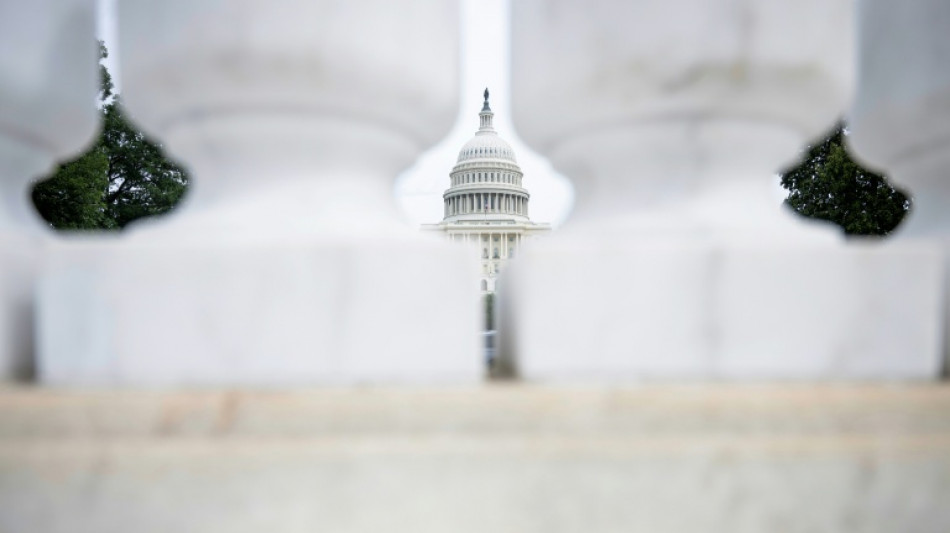

US on brink of government shutdown with funding talks stalled
The United States government was barreling towards its first shutdown in six years Tuesday, with funding expiring at midnight barring a breakthrough on deadlocked negotiations between Democrats and Republicans.
A last-gasp meeting at the White House on Monday yielded no progress, with top Senate Democrat Chuck Schumer saying afterward that "large differences" remained between both sides.
His party, in the minority in both chambers of Congress, is seeking to flex its rare leverage over the federal government, eight months into Donald Trump's barnstorming second presidency that has seen entire government agencies dismantled.
The 100-member Senate requires government funding bills to receive 60 votes -- seven more than the Republicans control.
With no sign of compromise, an afternoon Senate vote was expected on a short-term funding extension already passed by the House of Representatives, although there was little hope it would succeed.
Unless Congress passes a bill before midnight to fund federal operations, the government will partially close up shop -- and plunge Washington into a fresh political crisis.
A shutdown would see nonessential operations grind to a halt, leaving hundreds of thousands of civil servants temporarily without pay, and payment of many social safety-net benefits potentially disrupted.
Trump upped the ante Tuesday when he told reporters his administration may go beyond the usual practice of temporary furloughs and fire "a lot" of federal workers -- but he blamed Democratic demands for the looming crisis.
"It's like they don't change. They lost an election in a landslide, and they don't change," he said.
- 'On vacation' -
US government shutdowns are deeply unpopular, and Democrats and Republicans alike try to avoid the scenario -- while blaming the other camp in the event of a closure.
Republicans have proposed to extend current funding until late November, pending negotiations on a longer-term spending plan.
Democrats want to see hundreds of billions of dollars in healthcare spending restored, particularly in the Obamacare health insurance program for low-income households, which the Trump administration is likely to eliminate.
They also want to block Trump and Republicans from cutting approved funds later through the so-called "rescissions" process, as they did this summer. The process requires only a simple majority to pass.
Republican House Speaker Mike Johnson kicked off a pressure-cooker final day of brinkmanship ahead of the midnight deadline by accusing Democrats of weaponizing health care funding "to shut down the government and protect themselves from their radical base."
The House has already passed a seven-week stop-gap funding measure, and Johnson has sought to force Senate Democrats' hands by not bringing his chamber back to Washington this week.
But many Democrats have shown up and House Minority Leader Hakeem Jeffries assembled dozens of his members in front of the US Capitol to berate Republicans for being "on vacation" as the shutdown looms.
"We're ready, we're willing and able to find a bipartisan path forward to fund the government in a way that actually meets the needs of the American people in terms of their health, their safety and their economic wellbeing," he told reporters.
"But here's what we're not going to do: We're not going to support a partisan Republican spending bill that continues to gut the health care of the American people -- not now, not ever."
The gridlocked Congress regularly runs into deadlines to agree on spending plans.
In March of this year, with the threat of another shutdown already looming, Republicans refused to engage in dialogue with Democrats over massive budget cuts and the layoffs of thousands of federal employees.
Senate Democrats reluctantly provided the votes to end the stand-off but the decision angered the party base, which is calling on Democratic leaders to stand up to Trump.
P.Ortiz--RTC

